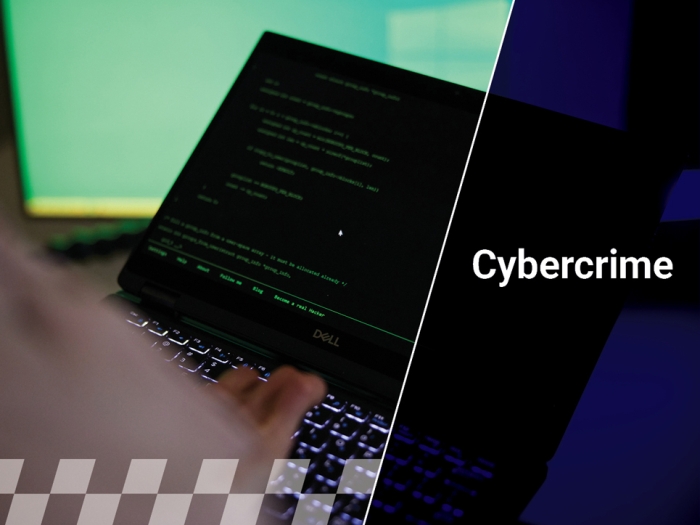re_B00TCMP inspires next generation of cyber champions
Editor’s note: Audio grabs of re_B00TCMP Project Lead Claudia Forsyth and vision from the event are available via Hightail
Students with the skills to hack ethically have completed an Australian first, AFP-led program that encouraged them to use their skills for good.
The re_B00TCMP pilot program aims to encourage students to pursue positive careers in cybersecurity by exposing them to opportunities that exist when they use their skills within the boundaries of the law.
The AFP-led Joint Policing Cybercrime Coordination Centre (JPC3), with support from the NSW Department of Education, ran the re_B00TCMP program in Sydney on 5 March, 2024, at the Fortress E-Sports Arena.
Eighteen students, aged between 14 to 17 years, participated in the one-day program. The students were chosen by the JPC3 for their tech curiosity and impressive IT skills.
The program brought together educators and industry experts to mentor students, exposing them to positive uses of their IT skills, while also teaching them digital and social responsibility. It featured interactive cyber challenges, industry expert sessions, and discussions on career pathways.
The re_B00TCMP program aims to teach young people about online boundaries and to prevent them from crossing those often-thin lines to ensure everyone knows the lawful parameters of the online word. It proactively teaches young people the difference between ethical and non-ethical hacking.
The students engaged in a digital cyber hunt challenge where they applied their technical skills to compete for a subscription to a cyber security training course.
Parents, carers, and teachers also attended a parallel program that encouraged them to understand what their children do online and were provided with guidance on how to have open conversations and actively foster their talent.
AFP re_B00TCMP Project Lead and Team Leader Cybercrime Prevention, Claudia Forsyth, said young people were curious and like many teenagers, it was not uncommon for them to test boundaries.
“Growing up, children are taught about the dangers of illicit drugs and the importance of sun safety, yet they aren’t taught how to legally navigate the online world,’’ Ms Forsyth said.
“It is just as important for them to learn these lessons from a young age.
“For example, not many young people know that it is a criminal offence to use skills and software to boot a competitor off an online game by attacking their internet connection.
“Some young people may not realise it is unlawful to test their skills by hacking into their school system and essentially using it as a playground, even if they are just being curious.
“We have a responsibility to help guide them through their curiosity of the online world.
“You would never teach a young person to drive without first teaching them the road rules. re_B00TCMP fills a current gap in Australia for educational interventions as it inspires young minds to channel their passion for IT into positive, lawful, and socially beneficial activities.
“The 12 to 17 years age bracket is crucial, as it is often when students are heavily exposed to the online environment and like any teenager, they may be curious about testing the boundaries, making this an opportune time to have a positive impact.
“Through interactive sessions, workshops, and meaningful engagement with law enforcement and industry mentors, the program educates and inspires young talents to lay the groundwork for a future where digital safety and responsibility are paramount.
“We're not only shaping the future of cybersecurity, but also empowering the next generation to leverage their talents for good, contributing significantly to bridging the cyber skills gap in Australia. re_B00TCMP is about creating the next generation of Australia’s cyber champions.
“‘Flipping the script on hacking’ is the re_B00TCMP Australia tagline because it’s about changing people’s perception of hacking, which is a skillset that can be used for good with the right direction.”
The Dutch National Police established the re_B00TCMP program in 2021 and have delivered the program to more than 390 students and 155 teachers and parents in the Netherlands.
“We thank the Dutch National Police for their guidance, and the NSW Department of Education, our industry and education presenters, and policing partners for making the program possible,” Ms Forsyth said.
The NSW Department of Education promoted the rollout of the Australian pilot program to students across NSW, and the JPC3 will now aim to expand re_B00TCMP across Australia with the support of state and territory police agencies.
“Students and parents have gained knowledge and skills about cyber security technologies and pathways into a career in cyber,” Damien Mathieson, NSW Department of Education’s Chief Information Security Officer said.
“Some students were not sure of what they would experience during the day but left with a promise to tell others how much fun they had and how cyber can be a very rewarding field.
“Parents heard the importance of ‘working together’ with their child to support their technical interests such as when gaming online or playing with robotics and mentor them by being good role-models.”
The JPC3 brings together Australian law enforcement and key industry and international partners to fight cybercrime and prevent harm and financial loss to the Australian community.
The AFP is committed to equipping all Australians with the knowledge and resources to protect themselves against cybercrime.
Watch our cybercrime prevention videos and protect yourself from being a victim of cybercrime.
If there is an immediate threat to life or risk of harm, call 000.
If you are a victim of cybercrime, report it to police using Report Cyber.
If you, or someone you know needs help, we encourage you to contact Lifeline on 13 11 14 or Beyondblue on 1300 224 636, who provide 24/7 support services.




